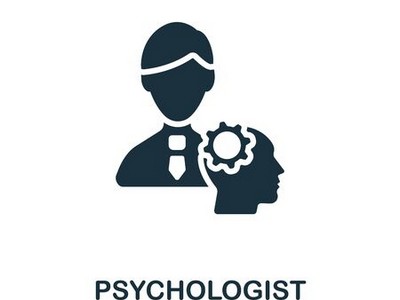
Tips For Depression Psychologist Ashmore (07) 5539 9798
Isabella Whittingham Registered Psychologist Ashmore

Introduction: Depression And Anxiety Psychologist Ashmore Near Me
In today's fast-paced and requiring world, psychological health problems have become progressively widespread. 2 of the most common mental health conditions are anxiety and anxiety. While they might share some resemblances, it is very important to understand the differences between the 2 conditions in order to seek appropriate treatment and assistance. This article aims to supply an extensive understanding of stress and anxiety and anxiety, https://surfersparadisechiropractic.com.au/isabella-whittingham-registered-psychologist-gold-coast/ their signs, causes, and readily available treatments.
Anxiety vs. Depression: Comprehending the Distinctions and Similarities
What is Anxiety?
Anxiety is a typical human feeling that everyone experiences from time to time. It is identified by feelings of worry, worry, or worry. Nevertheless, when these feelings become excessive or relentless, it may show a stress and anxiety disorder.
Symptoms of Anxiety
- Excessive worrying
- Restlessness
- Trouble concentrating
- Irritability
- Muscle tension
- Sleep disturbances
Causes of Anxiety
Anxiety can be triggered by a mix of genetic, ecological, and mental factors. Terrible life occasions, chronic stress, or a household history of anxiety conditions can increase the threat of establishing a stress and anxiety disorder.
What is Depression?
Depression is a mood condition that affects how an individual believes, feels, and behaves. It goes beyond regular feelings of sadness or grief and can considerably affect daily functioning and quality of life.
Symptoms of Depression
- Persistent sadness or emptiness
- Loss of interest or pleasure in activities
- Fatigue or low energy levels
- Changes in hunger or weight
- Difficulty sleeping or oversleeping
- Feelings of insignificance or guilt
Causes of Depression
Depression is a complex condition with several contributing elements. It can be caused by hereditary predisposition, biochemical imbalances in the brain, hormone changes, certain medical conditions, or terrible life events.
Similarities In between Anxiety and Depression
While stress and anxiety and anxiety are distinct conditions, they often exist side-by-side and share some common symptoms. Both conditions can trigger feelings of restlessness, irritation, difficulty focusing, and sleep disturbances. In addition, individuals with anxiety or anxiety may experience physical signs such as headaches, digestive issues, or persistent pain.
Differences In between Stress and anxiety and Depression
Emotional Symptoms
Anxiety is mainly characterized by extreme worry and worry, while depression is marked by consistent unhappiness and loss of interest in activities. Individuals with stress and anxiety might feel on edge or constantly on guard, whereas those with anxiety may experience a sense of hopelessness or emptiness.
Physical Symptoms
While both anxiety and depression can manifest physically, the particular signs vary. Stress and anxiety often provides with symptoms such as muscle stress, racing heart, shortness of breath, and shivering. In contrast, depression might trigger low energy levels, modifications in appetite or weight, and sleep disturbances.
Thought Patterns
Anxiety tends to be associated with excessive rumination and overthinking. Individuals with anxiety typically have racing thoughts and might have a hard time to control their concerns. On the other hand, depression is characterized by unfavorable idea patterns such as self-criticism, feelings of worthlessness, and a pessimistic outlook on life.
Impact on Daily Functioning
Both anxiety and anxiety can significantly impact day-to-day performance; nevertheless, they do so in different methods. Anxiety can result in avoidance behaviors or difficulty concentrating on jobs due to excessive worry. Depression often leads to reduced motivation, loss of interest in previously taken pleasure in activities, and troubles with decision-making.
FAQs about Anxiety vs. Depression
Q: Is anxiety a sign of depression? A: While anxiety can be a sign of depression for some individuals, it is not constantly the case. Stress and anxiety disorders and depression stand out mental health conditions that can exist side-by-side however likewise happen independently.
Q: Can you have both anxiety and anxiety at the exact same time? A: Yes, it is possible to have both anxiety and depression simultaneously. This is referred to as comorbidity, and it is relatively typical for individuals with mental health disorders.
Q: Is stress and anxiety or anxiety more common? A: Anxiety disorders are somewhat more prevalent than anxiety, however both conditions are among the most common mental health disorders worldwide.
Q: Can anxiety become depression? A: While stress and anxiety can add to the advancement of anxiety sometimes, it does not necessarily result in anxiety. However, chronic and unattended stress and anxiety can increase the threat of establishing depressive symptoms.
Q: Are there reliable treatments for stress and anxiety and depression? A: Yes, there are several evidence-based treatments available for stress and anxiety and depression. These may include treatment (such as cognitive-behavioral therapy), medication, way of life changes, and self-help strategies.
Q: The length of time does stress and anxiety or anxiety last? A: The duration of stress and anxiety or depression can vary commonly depending upon individual factors such as treatment adherence, support systems, and underlying causes. Some individuals may experience intense episodes that resolve within a couple of weeks or months, while others might have persistent conditions that require continuous management.
Symptom Of Depression Psychologist Ashmore
Do I Suffer From Depression Psychologist Ashmore Near Me
Isabella Whittingham Registered Psychologist Gold Coast
Surfers Paradise Chiropractic Centre-Dr. Bruce Whittingham
12 Thomas Drive, Surfers Paradise QLD 4217
(07) 5539 9798
https://surfersparadisechiropractic.com.au
What Are The Symptoms Of Depression Psychologist Ashmore Near Me